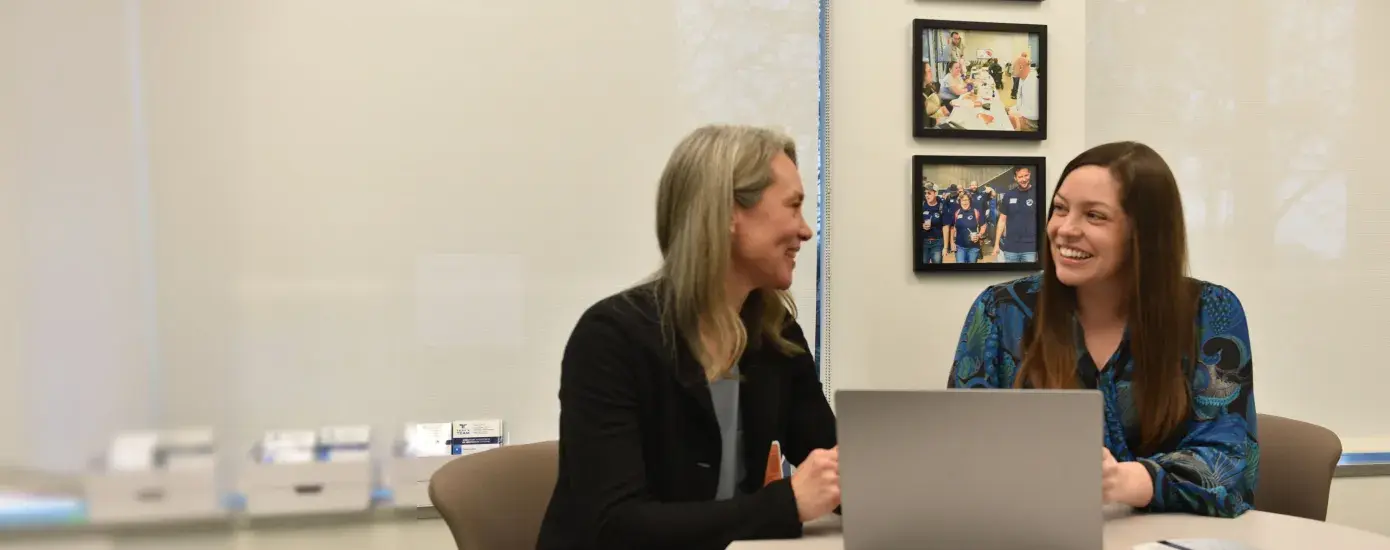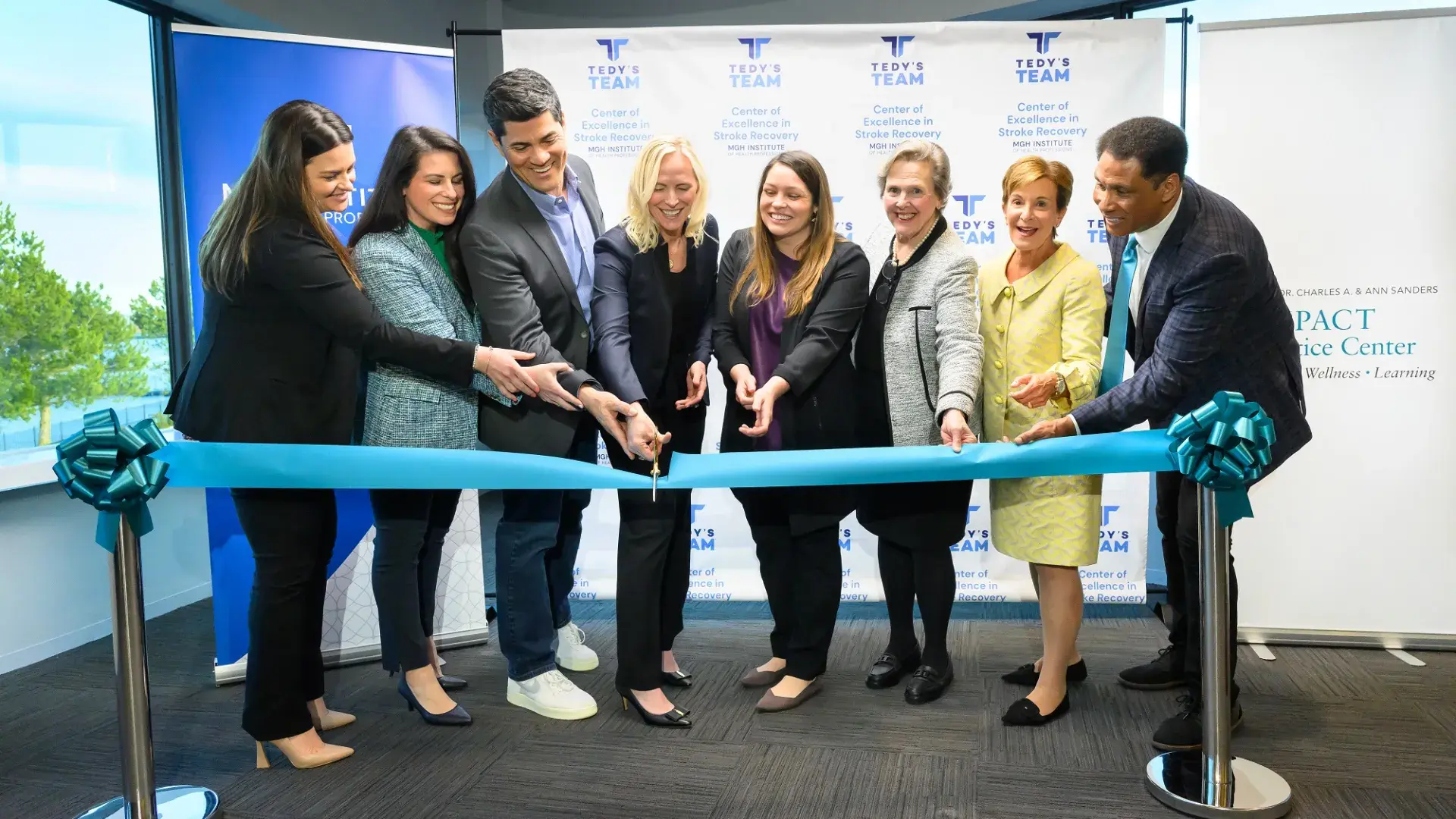
On March 2, 2023, the Tedy’s Team Center of Excellence in Stroke Recovery at the MGH Institute of Health Professions celebrated its official launch. The Center was made possible thanks to a $1 million gift by Tedy’s Team, the charitable organization co-founded by former New England Patriot great Tedy Bruschi and his wife Heidi that uses running as a platform for stroke awareness and philanthropy. After experiencing a stroke at age 31 and making a remarkable return to professional football, Bruschi dedicated himself to ensuring other survivors have the same opportunity for a comeback.
Over the past two years, the Center has expanded its impact through education, research, and rehabilitation care for stroke survivors. It has championed the BE FAST message — an acronym for recognizing the signs and symptoms of stroke, through workshops, health fairs, and educational materials.
Kim Erler, the director of the Center, and Gwen Larsen, the education/community outreach coordinator, recently spoke with OSC’s Lisa McEvoy about the Center’s first two years for this month’s IHP Interview.
When you think about the first two years of the Tedy’s Team Center of Excellence in Stroke Recovery, what stands out the most?
Erler: We are really proud of the impact that the Center of Excellence has had on the lives of stroke survivors and communities. Without Tedy’s Team Center of Excellence, and the generous gift from Tedy and Heidi Bruschi, we would not have been able to expand opportunities for stroke survivors and their care partners to improve their lives or bring the BE FAST message to underserved communities.
The challenges that stroke survivors experience persist beyond the typical rehabilitation period allotted in the traditional models of care. To make progress toward their individual goals, they need ongoing intervention that also encompasses community participation, social engagement, and emotional recovery.
In November 2023, we hosted an Invited Speaker Symposium with Dr. Debra Meyerson, a stroke survivor and co-founder of Stroke Onward, who shared her journey of self-discovery and rebuilding identity. There were many students, faculty, clinicians, and stroke survivors at the symposium. One student was so inspired she worked with the Center to create a group focused on Rebuilding Identity after stroke. This group had a profound impact on the stroke survivors who participated.
How is the Center helping to bridge gaps in stroke rehabilitation?
Larsen: Tedy’s Team Center of Excellence has been able to provide additional programming that supports the emotional recovery piece by promoting connection and community participation. Our events have included an annual Waterfront Wellness Walk in partnership with the New England Aquarium, the Art of Recovery Day in partnership with the MGH Neurorecovery Clinic, social events around the holidays to celebrate client accomplishments, and support group programming for stroke survivors and their care partners.
The feedback we receive has been overwhelmingly positive. After the life interruption that a stroke can cause, communities like this can make people less isolated, less invisible.
What research initiatives have been made possible through the Center?
Erler: The Center has fostered a thriving research community by providing critical seed funding through the Tedy’s Team Stroke Fellowship Program. This initiative supports early- and mid-career investigators in obtaining pilot data — an essential step in securing larger external grants.
We’ve awarded three fellowships for faculty to develop their projects, collect data, publish research, and present at conferences. Through the Center, we’ve cultivated an interdisciplinary space where researchers engage directly with stroke survivors. These conversations shape research priorities, ensuring studies align with real-world needs. It’s not just about scientific discovery — it’s about making meaningful change in stroke care and the lives of stroke survivors.

